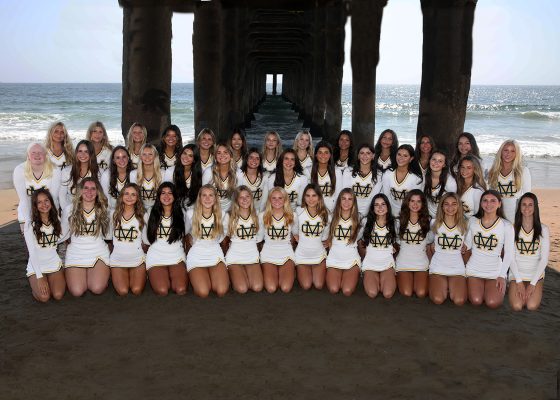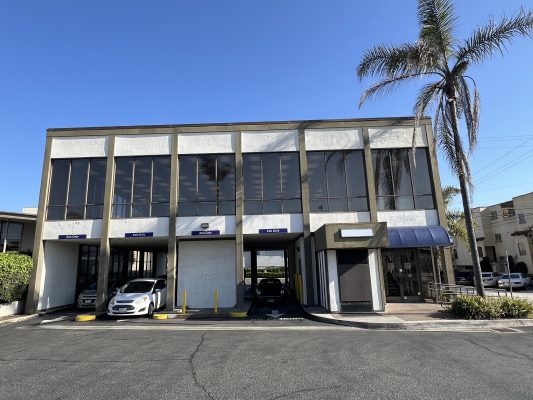by Garth Meyer
The California State Bar last week found Redondo Beach City Councilman Zein Obagi, Jr., culpable of two acts of “moral turpitude” for failing to pay $515,000 to a former client after the settlement of a lawsuit.
Judge Manjari Chawla recommended that Obagi’s law license be suspended for two years, and that he completes State Bar ethics education and complies with probation.
“Obagi is culpable of moral turpitude by his grossly negligent misappropriation of funds belonging to (the former client) in willful violation of (State Bar rules),” the judge wrote.
The Bar’s prosecutor had sought disbarment for Obagi, although Judge Chawla did not see “clear and convincing evidence” that the misappropriation was intentional and dishonest.
“Obagi placed his interest above those of (his former client), not because he knowingly sought to deprive him of the money,” wrote the judge. ”(The prosecutor) does not prove… that the misappropriation was calculated.”
Chawla did rule, however, that related actions taken by Obagi were grossly negligent in that he delegated his $515,000 payment obligation to a third party.
Obagi responded to the ruling in a December 7 statement to the media, which read, in part:
“The State Bar Court decision confirms what I have stated since this matter was brought forward — I never engaged in any intentional wrongdoing, never acted dishonestly and gained no financial benefits … The only solace I take from this decision is the Court’s recognition of my ‘extraordinary good character.’ I’m also glad the State Bar Prosecutor, and the Court agreed that my ‘wrongdoing does not appear to have been caused by dishonesty or corruption.’”
“I do feel that the Court’s decision is excessively punitive since there is not, and has not been any outstanding harm,” Obagi wrote.
The judge assessed that Obagi’s acknowledgment of his misdeeds was inconsistent.
“He also blames others for his acts, including filing a lawsuit against (his original attorney). Equally concerning are his multiple attempts throughout trial to undermine and contradict the binding statements of facts he had previously stipulated to — even more troubling as he had the assistance of counsel,” Chawla wrote.
The charges stem from 2016 when Obagi represented Eric Dominguez and Tim Cullen, co-owners of a Los Angeles marijuana dispensary. After the pair parted ways in dispute Obagi represented Cullen in two lawsuits against Dominguez.
“Once Obagi received payment for his legal fees, he immediately disclaimed all responsibility for the safekeeping and distribution of entrusted funds owed to Dominguez,” Chawla wrote. “Obagi had a non-delegable obligation to ensure the safeguarding of Dominguez’s funds and his reckless decision to delegate this important responsibility to a third party (Cullen) is, at minimum, grossly negligent. Obagi committed willful misappropriation by disbursing money belonging to Dominguez to others, regardless of any intentional breach or bad faith.”
The State Bar filed seven counts against Obagi in August 2021, followed by five more after he sued the attorney who initially defended him against the first five counts.
The judge’s recommendation for sentencing now goes to the California Supreme Court, which decides attorney discipline.
A decision is expected after Feb. 1.
Chawla also reprimanded Obagi for representing Cullen against Dominguez.
“It is difficult to conceive of a greater breach of the duty of loyalty than an attorney who sues his former client in the same matter in which the attorney formerly represented the client,” Chawla wrote in her decision. “In fact, common sense should have guided Obagi that he could not act against (the former client’s) wishes in the same case in which he provided him with legal representation.”
For Obagi’s punishment, the judge weighed a list of factors in her recommendation, including letters testifying to the the Redondo city councilman’s character from Redondo Beach Mayor Bill Brand, six attorneys who have known Obagi from three to 20 years, a city council member, a community activist, a clinical social worker, a friend, his housekeeper, a former client and his office manager.
“Obagi’s misconduct is substantially aggravated by multiple misdeeds, significant harm to Dominguez, and indifference and lack of insight by failing to accept accountability for some of his behavior,” the judge wrote. “But his actions are mitigated by his good character, cooperation, community service and lack of prior discipline. On the whole, the magnitude of Obagi’s transgressions are considerable and his aggravation and mitigation roughly equal. … Nevertheless, his transgressions call for a lengthy, actual suspension.”
On the subject of remorse, the judge expressed doubts.
“Obagi argues that he demonstrated remorse and recognizes his offenses by emailing an apology to Dominguez,” wrote the court. “The email was neither prompt nor spontaneous, as it was sent years after Obagi’s misconduct and only after (the State Bar) filed charges against him.”
Good faith was another area of doubt.
“This court does not find that Obagi established good faith by clear and convincing evidence. Good faith requires showing that the belief was honestly held and objectively reasonable. Obagi’s conduct was not supported by any reasonable, good faith belief that he was authorized to transfer Dominguez’s money to a third party or that he was excused from paying Dominguez after he had agreed to do so.”
“The law does not compel false penitence but does require an attorney to accept responsibility,” Chawla wrote.
Last year, Obagi faced down a recall effort for his District Four city council seat, winning by 73% of the vote in the October special election.
The State Bar allegations figured prominently in the recall campaign.
Obagi took office in 2021, beating previous representative John Gran by a narrow margin.
“I have full confidence that Councilmember Obagi can continue to do excellent work for his district and for our city as a whole,” Mayor Brand said.
“The worst part of this outcome is that I have to pause my hard work fighting for justice for those who have been wronged in their workplace,” Obagi wrote in his statement to the media. “My clients have faced discrimination or unlawful retaliation in the workplace, and have long, hard fights ahead of them for justice in state and federal courts. To them, because I will not be able to personally see their matters to conclusion, I am the most sorry.”
Obagi, Jr. told Easy Reader Monday in an interview that he is still practicing law, and referring his clients to other attorneys. Without a law license, a person is allowed to work under the supervision of a licensed attorney.
“The ruling was very surprising. I expected three months or no suspension at all,” Obagi said. “I have some disagreement with the ruling but I am not going to be appealing it. It was not intentional… if anything, it was an error. It’s sad that I had to fight it for three years to establish that.”
Obagi noted that he will be 42 at the end of a two-year suspension, and thinks he has not reached the prime of his career.
“It was a mistake that was made frankly in a fast-growing practice, and not enough mentorship. There were other resources I should have consulted,” he said. “But I had a lot of other clients, a lot of other work to tend to. Being diligent was my downfall.”
Judge Chawla described misappropriation as “endangering public confidence in the profession and (it) warrants severe discipline even for a lone, first-time offense.”
Obagi said that the Dominguez-Cullen settlement was five years ago and since that time he has pared down his caseload from about 40 cases to 25.
What has been the reaction from constituents?
“I’ve gotten a lot of support from constituents. Including from some people who have historically not supported me. I’ll survive and Redondo Beach will continue to thrive.”
Obagi started his law firm in 2009, a year and a half out of law school.
If he had to do it over again, what would he do differently?
“Never touch a cannabis client. Because it’s all a bunch of shady characters,” he said.
What would he tell a young lawyer who has just passed the bar, just starting their career?
“At the sight of a clients’ conflict of interest between two clients, call the Bar ethics hotline or contact an ethics attorney,” Obagi said. “They’ve got to walk away rather than continue to help people. Or continue to help one, or the other.” ER











